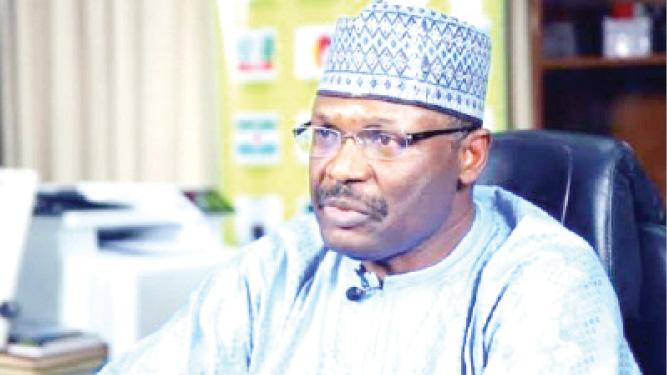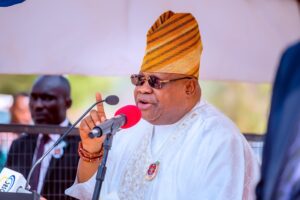On fake naira notes – Tribune Online
[ad_1]
RECENTLY, operatives of the Ekiti State Amotekun Corps arrested a man identified as Celestine with counterfeit new N1,000 notes amounting to about N250,000. Celestine, a Lagos-based businessman, said he was heading from Lagos State to Isanlu in Kogi State to buy kolanuts and bitter kola when he was arrested with the fake new naira notes. Speaking while being paraded at the corps’ state headquarters in Ado Ekiti, the Ekiti State capital, the suspect claimed to be an innocent businessman deceived by scammers. He said: “I collected the fake new naira notes from a customer in Lagos State without knowing that they were not genuine. Following my arrest, I had tried to contact him for my release. I am still expecting to hear from him.”
Speaking on the incident, the Amotekun State Commander, Brigadier-General Joe Komolafe (retd), said the suspect was apprehended at Omuo Ekiti in Ekiti East Local Government area of Ekiti State by his men after spending some quantities of the counterfeit notes in a local market in the area. His words: “Our men were reliably informed that the suspect came into the community with about N250,000 fake new N1,000 notes… He will be handed over to the police for further probe and prosecution on completion of our investigation.” In another incident, the Enugu police command arrested two suspects with fake notes in Ibagwa-Aka community of Igbo-Eze Local Government Area of the state. Daniel Ndukwe, the command’s spokesperson, said the suspects, Joseph Chinenye and Onyeka Kenneth Ezeja, were caught at a filling station with fake redesigned N1000 in 180 pieces “where they used the notes to purchase petrol.” Again, last week, the Kebbi State police command arrested three persons in Warrah town of Ngaski Local Government Area of the state with N17 million fake naira notes. According to the Commissioner of Police in the state, CP Ahmed Magaji Kontagora, the suspects, namely Faruku Zubairu, Ibrahim Musa and Salish Muhammed, were arrested with the assistance of the National Union of Road Transport Workers (NURTW) at the Warrah motor park.
Of course, following the release of the notes, the Central Bank of Nigeria (CBN) released some security features with which to identify the fake new naira notes. According to the apex bank, the security features to look out for are the following: intaglio (when the image on the naira note is incised into a surface, and the incised line or sunken area holds the ink); portrait watermark (the new naira notes’ watermark is in portrait form); optically viable ink (the light reflects off OVI security ink when viewed at an angle; the OVI in the new naira notes changes from blue to green with a change in the view angle; kinegram (an image of the Nigerian Coat of Arms in the original new N1000 note); Iridescent band (a symbol at the top of the new N1000 note changes when seen from different angles) and engraved portrait (the picture of Nnamdi Azikiwe in the new N500 note is carved into a surface; the portrait is painted or sketched on the right side to enable you to identify the original). As can be easily seen, these details are complex and difficult to process even with the accompanying illustrations.
The Nigerian economy witnessing an invasion of fake naira notes is really unfortunate. Naturally, against the backdrop of the cash crunch in the country, people with criminal inclinations would try to exploit the situation: the counterfeiters are like the Biblical enemy who came to sow tares while men slept. It is a herculean task for the average citizens to identify fake from genuine currency notes. In other words, the average citizens are prone to being doubly jeopardised by the country’s system. They are yet to be familiar with the new currency notes, yet fakers are having a field day, with some of them being audacious enough to display the details of the processes of their craft openly on social media. But beyond the tardiness of the government’s preparations for the new notes and the widely reported miracle that happened to a cleric who allegedly found crisp, new naira notes in his Bible amidst the pervasive cash crunch in the country, there must be some cause for cheer.
Nigerians deserve access to the new notes. It is bad enough to experience cash crunch in the country; being swindled amidst the hardship is worse. The government must prevent further punishment of Nigerian citizens by ensuring that the newly redesigned naira notes become available. It is indeed distressing that while many hard-working and patriotic Nigerians have no access to the new notes, counterfeiters are already flooding the country with their imitations. Given that there is a cash crisis arising from the insufficient circulation of the new naira notes, it is reasonable to expect that many Nigerians would not be yet familiar with the new notes and would thus be susceptible to getting swindled with fake ones. That is why the claim by the suspect arrested in Ekiti State must be thoroughly investigated. The reports on the discovery of the circulation of fake specimen of the new redesigned naira notes across the country are indeed disturbing. This is a further regrettable situation arising from the tardiness surrounding the implementation of the naira redesigning exercise by the government. We expect the government to ensure the adequate supply of the new naira notes for transactions in the country to offset the current cash crisis, while also going after those faking the new notes and attempting to flood the country with them.
Security agencies should step up their act. They must work hard to identify and expose those behind the racket in order to stop their criminal activity and ensure that they are punished appropriately for it. Nigerians should not be made to suffer the affliction of fake currency with the hardship they are currently experiencing over the cash crisis.
READ ALSO FROM NIGERIAN TRIBUNE
[ad_2]













Post Comment